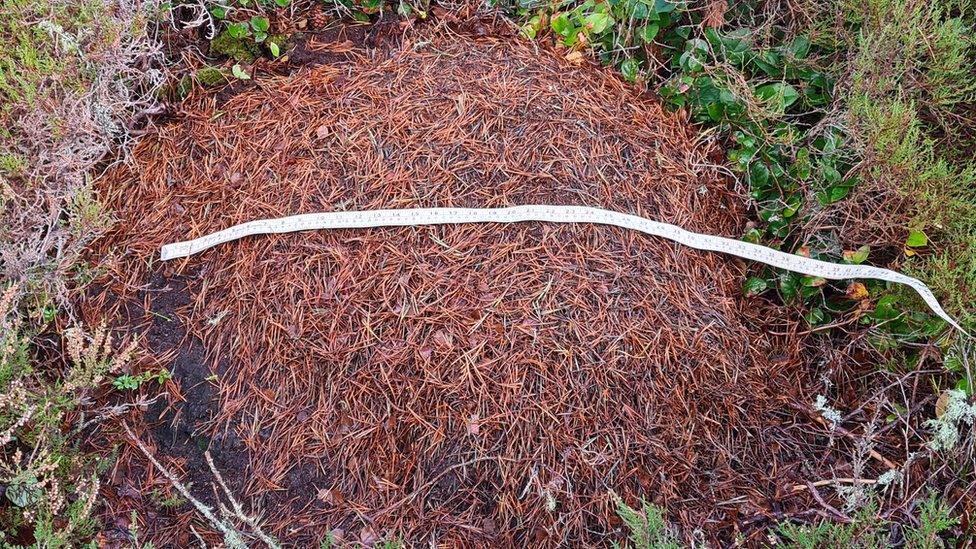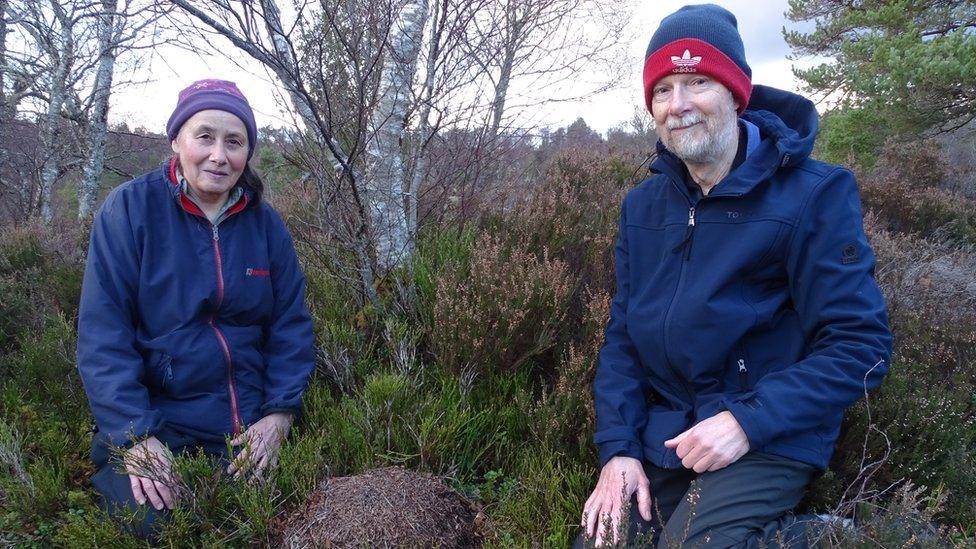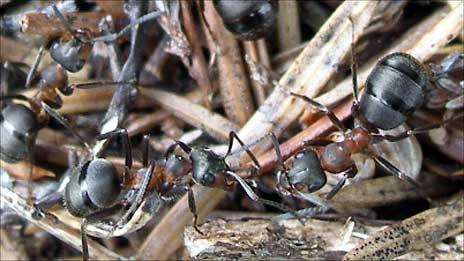Carbon-capturing wood ants under threat from invasive plant
- Published

More than 50 anthills surveyed were found to be at risk from the plant
A carbon-capturing ant is coming under threat from a non-native plant found across the UK, according to a conservation group.
Woodland Trust Scotland said hairy wood ants boosted carbon absorption in woodland, but they risk being overwhelmed by gaultheria shallon.
Volunteers surveyed nests over the winter at the trust's Ledmore and Migdale woods in the Highlands.
More than 50 anthills were found to be under threat from the invasive species.
The hairy wood ant - or formica lugubris - is a key species for removing pests from trees. The ants are also a food source for other animals like capercaillie and badgers.
A close relative of the wood ant has been shown to clear up to 39kg (86lb) of carbon per hectare annually, Woodland Trust Scotland said.

Meg and Chris Mellish have volunteered to remove the plants
Site manager Ross Watson said: "Some of these newly discovered nests were surrounded by an invasive garden plant, gaultheria shallon, that is also threatening parts of the oak wood.
"The ants prefer sunny open glades that are south facing and so does the plant. If left unchecked, it forms dense thickets that exclude native vegetation. It would overwhelm our ant nests too if we let it."
Volunteers Chris and Meg Mellish are part of a clearance squad helping to remove the shallon bush this spring.
Woodland Trust Scotland hopes to eradicate the plant from the site.
Although non-native to the UK, gaultheria shallon is spread when its berries are eaten by wild birds. Once the plant is established, it spreads via underground stems.
Mr Watson added: "This is a great example of the vital role our volunteers play in managing these sites. Without the time and care from Chris, Meg and the others these nests may well have been lost."
- Published29 April 2011
